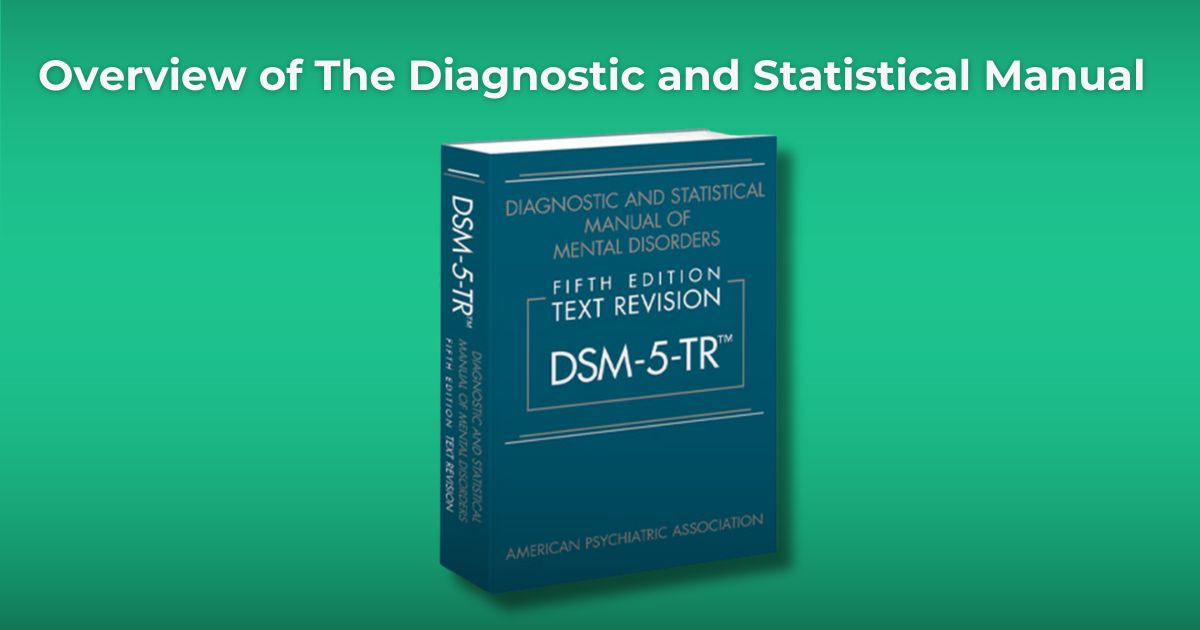Schizophrenia, a complex and often misunderstood mental disorder, affects millions worldwide. For those living with schizophrenia or caring for someone who does, navigating the path to diagnosis and treatment can be daunting. However, a pivotal step on this journey is the schizophrenia diagnostic evaluation, a comprehensive process essential in understanding and managing this condition.
In this blog, we’ll explore common signs and symptoms of schizophrenia, how and when schizophrenia is diagnosed, and more.
Join us on this enlightening journey as we demystify the diagnostic psychological evaluation for schizophrenia, offering insights into the process and the hope it can provide for those affected by this challenging disorder.
What is Schizophrenia?

Schizophrenia is a complicated and incapacitating mental condition that affects a person’s thoughts, feelings, and behavior. It usually appears in late adolescence or early adulthood but can manifest at any age.
Characterized by a disconnection from reality, individuals with schizophrenia often experience hallucinations, delusions, and severe disruptions in thought processes. Hallucinations involve perceiving things that aren’t real, such as hearing voices or seeing objects others cannot.
Delusions are erroneous beliefs that persist despite evidence to the contrary, often leading to paranoia or grandiose thoughts. Cognitive impairments, such as difficulty concentrating and disorganized thinking, are also common.
The exact cause of schizophrenia remains unclear, with genetics, brain chemistry, and environmental factors all playing a role. Treatment typically involves a combination of antipsychotic medications, psychotherapy, and support from mental health professionals and loved ones.
While there is no cure for schizophrenia, early schizophrenia diagnoses and appropriate treatment can help individuals manage their symptoms, improve their life quality, and reduce the impact of this challenging disorder on their daily functioning. Support and understanding from society are crucial in helping those with schizophrenia lead fulfilling lives.
Common Signs and Schizophrenia Symptoms
Schizophrenia is a complex mental disorder that presents a wide range of indications and symptoms, varying in severity and duration among individuals. Common signs and schizophrenia symptoms include:
- Hallucinations: People with schizophrenia often experience sensory perceptions that aren’t reality-based. Auditory hallucinations, like hearing voices, are common, but visual and tactile hallucinations can also occur.
- Delusions: Individuals may hold strong, irrational beliefs that are resistant to reasoning or evidence to the contrary. These delusions can take many forms, such as paranoid (believing others are plotting against them) or grandiose (having an exaggerated sense of self-importance).
- Disorganized thinking: Schizophrenia can disrupt thought processes, making it challenging for individuals to communicate coherently or maintain a logical flow of ideas.
- Impaired concentration: Difficulty focusing and sustaining attention is a frequent symptom. This can hinder daily functioning and academic or occupational performance.
- Emotional disturbances: Schizophrenia can cause a range of emotional states, from flat affect (a lack of emotional expression) to heightened anxiety, depression, or inappropriate emotional responses.
- Social withdrawal: Many people with schizophrenia withdraw from social interactions and isolate themselves due to fear, paranoia, or difficulty relating to others.
- Cognitive deficits: Problems with memory, problem-solving, and decision-making are common, affecting an individual’s ability to handle daily tasks.
- Negative symptoms: This includes a lack of motivation, reduced emotional expression, and diminished ability to experience pleasure (anhedonia).
How Is Schizophrenia Diagnosed?

Schizophrenia diagnosis involves a comprehensive assessment by mental health experts to rule out other conditions and confirm the presence of characteristic symptoms. The diagnostic process typically includes the following steps:
- Clinical Evaluation: A psychiatrist or psychologist conducts a thorough clinical interview with the individual to gather information about their symptoms, personal history, and family history of mental illness. This helps in understanding the context of the symptoms.
- Physical Examination: Performing physical exams and laboratory tests may be required to rule out medical conditions or substance use contributing to the symptoms. This helps ensure an accurate diagnosis of schizophrenia.
- Psychological Assessment: The administration of various psychological tests and assessments to evaluate cognitive function, thought processes, and emotional state is typical. These tests can help identify specific cognitive deficits and thought disorders associated with schizophrenia.
- Diagnostic Criteria: To diagnose schizophrenia, mental health professionals refer to the Diagnostic and Statistical Manual of Mental Disorders (DSM-5) criteria. To meet the criteria, an individual must exhibit specific symptoms and impairments in daily functioning for a significant duration.
- Collateral Information: Information from family members, friends, or caregivers may also provide a more complete picture of the individual’s symptoms and functioning.
- Longitudinal Assessment: Schizophrenia diagnosis often involves monitoring symptoms over time to ensure they are persistent and not due to a temporary condition.
When Is Schizophrenia Diagnosed?
Schizophrenia is typically diagnosed when a person exhibits a consistent pattern of symptoms that meet specific criteria outlined in the Diagnostic and Statistical Manual of Mental Disorders (DSM-5-TR), a widely accepted classification system for mental health conditions.
The diagnosis involves a careful evaluation by mental health professionals, such as psychiatrists or clinical psychologists.
The key criteria for diagnosing schizophrenia include characteristic symptoms like delusions (false beliefs), hallucinations (false sensory perceptions), disorganized thinking, speech, or behavior, and negative symptoms such as social withdrawal or reduced emotional expression. These symptoms must persist for at least six months, with significant impairment in daily functioning.
The diagnostic process often involves thorough clinical interviews, observations, and sometimes additional assessments like neuropsychological testing or brain imaging to rule out other possible causes of the symptoms. It is crucial to consider the patient’s medical history, family history, and the timeline of symptom development.
Early diagnosis and intervention are significant for managing schizophrenia effectively. Timely diagnosis allows for appropriate treatment strategies, including medication, psychotherapy, and psychosocial support, helping individuals with schizophrenia lead more fulfilling lives and minimize the disorder’s impact on their well-being.
If you or someone you know is experiencing symptoms suggestive of schizophrenia, seeking professional assistance is essential for an accurate diagnosis and the proper treatment.
How to Get Tested for Schizophrenia?

Getting tested for schizophrenia typically involves a comprehensive evaluation by mental health professionals. Here’s a general overview of the steps involved in the diagnostic process:
- Initial Assessment: The process often begins with an initial assessment by a mental health provider, such as a psychiatrist or clinical psychologist. This involves discussing the individual’s medical history, family history, and a detailed account of their symptoms and experiences.
- Clinical Interviews: The mental health professional will conduct thorough clinical interviews to assess the presence and duration of specific symptoms associated with schizophrenia, such as delusions, hallucinations, disorganized thinking, or negative symptoms.
- Observations: Observations of the individual’s behavior, thought processes, and emotional expressions are crucial in the diagnostic process. Family members or close friends may also be interviewed to provide additional insights.
- Medical and Neurological Examinations: Physical examinations and medical tests may be conducted to rule out any underlying medical conditions or substance abuse that could mimic schizophrenia symptoms. Neurological assessments may also be necessary.
- Psychological Testing: In some cases, psychological tests and assessments, such as cognitive or neuropsychological testing, may be administered to evaluate cognitive functioning further and rule out other disorders.
- Diagnostic Criteria: The diagnosis of schizophrenia is based on the criteria outlined in the Diagnostic and Statistical Manual of Mental Disorders (DSM-5), which includes characteristic symptoms lasting at least six months and significant impairment in daily functioning.
- Collaborative Approach: The diagnostic process often involves collaboration among mental health professionals to ensure accuracy and a comprehensive understanding of the individual’s condition.
How To Get Evaluated for Schizophrenia in Oakland, CA?
Obtaining a diagnosis of schizophrenia is a meticulous and multi-faceted process, requiring the expertise of mental health professionals. For effective management and a better quality of life, detection is vital. If you suspect you or someone you know may be experiencing symptoms of schizophrenia, don’t hesitate to seek help from a qualified mental health provider. Contact APS today!





